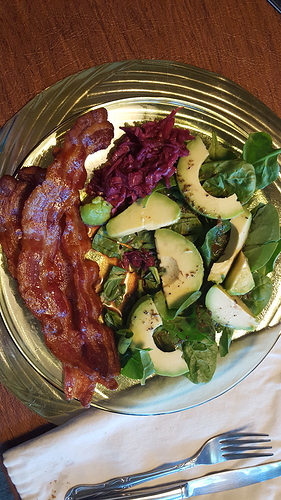I think she’s a good writer - have to give her that. However, I think she over-generalizes, relies on some stated and unstated assumptions, and truly goes off the logical rails at times.
the now-debunked carbohydrate-insulin hypothesis of obesity
This is such a blanket statement, and it is not true. While some doctors/scientists/researchers hold this opinion, at the most we have some apparently conflicted and inadequate studies; by no means is it so settled as she would have us believe.
Moreover, I have to say that on an anecdotal basis, the importance of insulin levels and carbohydrate intake with respect to obesity appears to be undeniable. I am sure that addressing this is what has made such a beneficial change for me - where nothing else has. That is also true for thousands of people who have posted on and read this forum. There is no rational way that it can be dismissed.
(Ketogenic) diets help us lose weight simply by creating a dietary structure that focuses on more satiating foods so that most individuals naturally achieve a caloric deficit while following these dietary templates.
True for some individuals; I’m not so sure about “most.” Regardless, I think she misses the point that said caloric deficit can be made up by the individual burning their own fat stores, and that this is a large component of many people’s weight loss.
When followed for long periods, ketogenic diets can tank our metabolism and have a muscle-wasting effect, making weight loss maintenance particularly challenging.
Oh come on! For how many people is that actually true?
So, while insulin resistance is clearly damaging, not eating enough carbs to support healthy amounts of insulin secretion can also lead to similar health problems and make long-term weight loss maintenance tougher.
Good for her for making such a positive statement about the problems of insulin resistance, but then she brings up what she assumes is an unhealthy, apparently too-low level of insulin. “Similar health problems” - as if equally bad things may occur if we somehow go “too low” on insulin. This does not make sense - let us address the known, demonstrable effects of insulin resistance without fear of her hypotheticals. If at some later time there is actual evidence of not enough insulin, then that can be addressed.
She goes on to discuss hormones and the evils of “too little insulin” at length. Other than with Type 1 Diabetes, I was not aware of it being a problem. She portrays the effects of ketogenic diets as possibly bad, because of the hormonal changes. This is neglecting the fact that ketogenic diets are successful, quite often, at restoring hormonal balance in the first place. Seems to me that her objections are fairly nebulous - along the lines of “This may happen…” without much if any proof that it is statistically likely that an individual will experience those problems, and without recognizing the fact that even if there are some bad effects along with the good, the good usually will far outweigh the bad.





